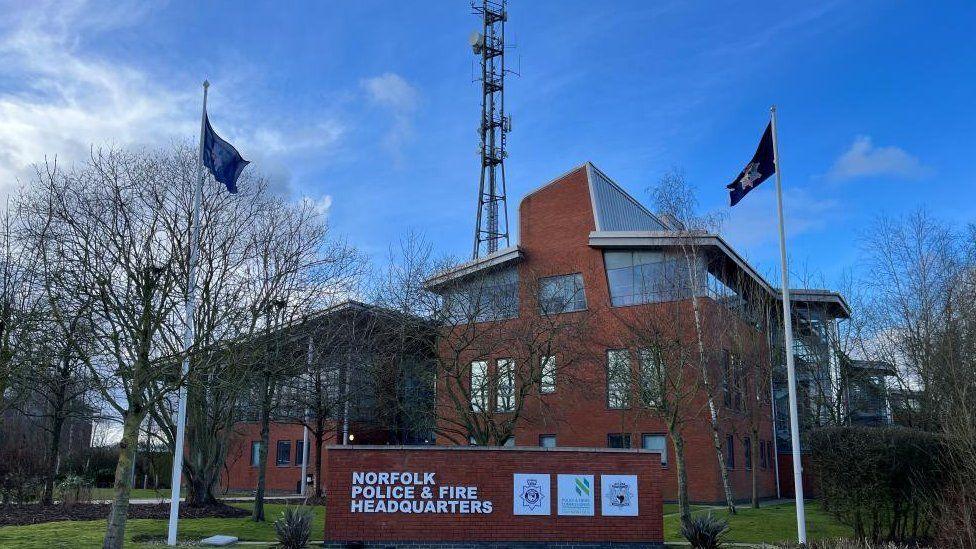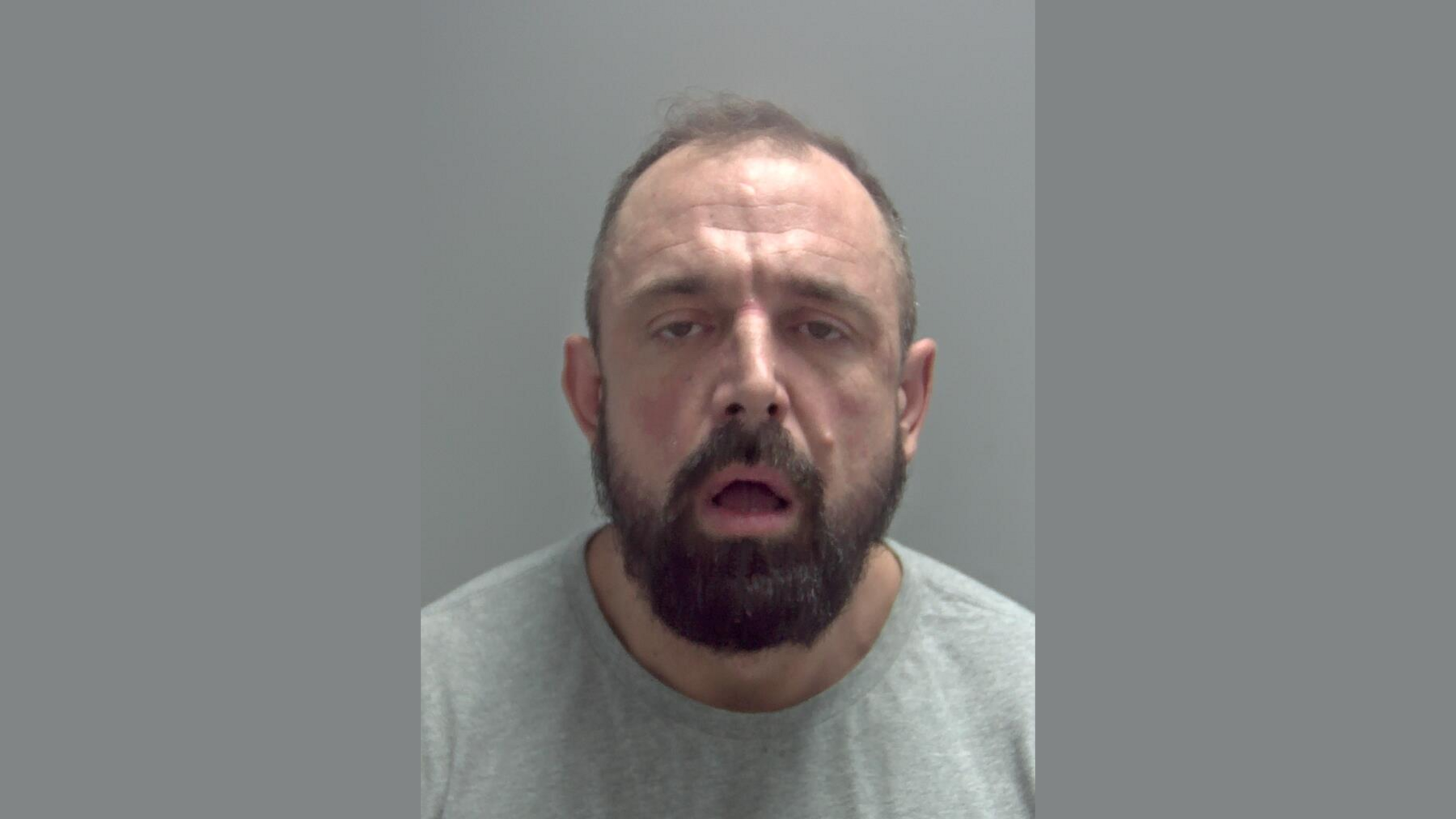Coercive control victims urged to speak up by police

Det Supt Dave Freeman said victims experiencing coercive or controlling behaviour will receive a response that "demonstrates compassion and supports you"
- Published
Victims of coercive or controlling behaviour should have the confidence to contact the police for support, a senior officer said.
Det Supt Dave Freeman from Norfolk Police said victims were often being tracked.
On Tuesday, Lee Mallett, 40, from Norwich, was found guilty of engaging in controlling, coercive behaviour and of intentional strangulation.
"I want people to have confidence to contact us. You can expect a response that demonstrates compassion and supports you," Det Supt Freeman said.

Mallett was sentenced to 45 months in prison and handed a 10-year restraining order
Mallett's victim described how he controlled her by keeping her at home and making initimate videos which he threatened to put on the internet.
She was prevented from contacting her family and told not to swallow her own saliva.
Mallett was sentenced to 45 months in prison and handed a 10-year restraining order.
Recorder Richard Conley described Mallett's behaviour as "insidious".
“You’ve showed a persistent action over a prolonged period. It was insidious and calculated behaviour. You were a Jekyll and Hyde character," he said.
Det Supt Freeman said: "Cases such as these where the victim has a really strong sense of justice and protection is really good and hopefully demonstrates how unacceptable it is."
Offenders often feel "entitled" to act in that way and they make their victims believe there is "no way" out of their situation, he said.
"We will look at supporting victims and we will focus robustly on the suspect's behaviour during our investigation," he added.
If you've been affected by domestic abuse or controlling behaviour, help and support is available via the BBC Action Line.
Follow East of England news on Facebook, external, Instagram, external and X, external. Got a story? Email eastofenglandnews@bbc.co.uk, external or WhatsApp us on 0800 169 1830